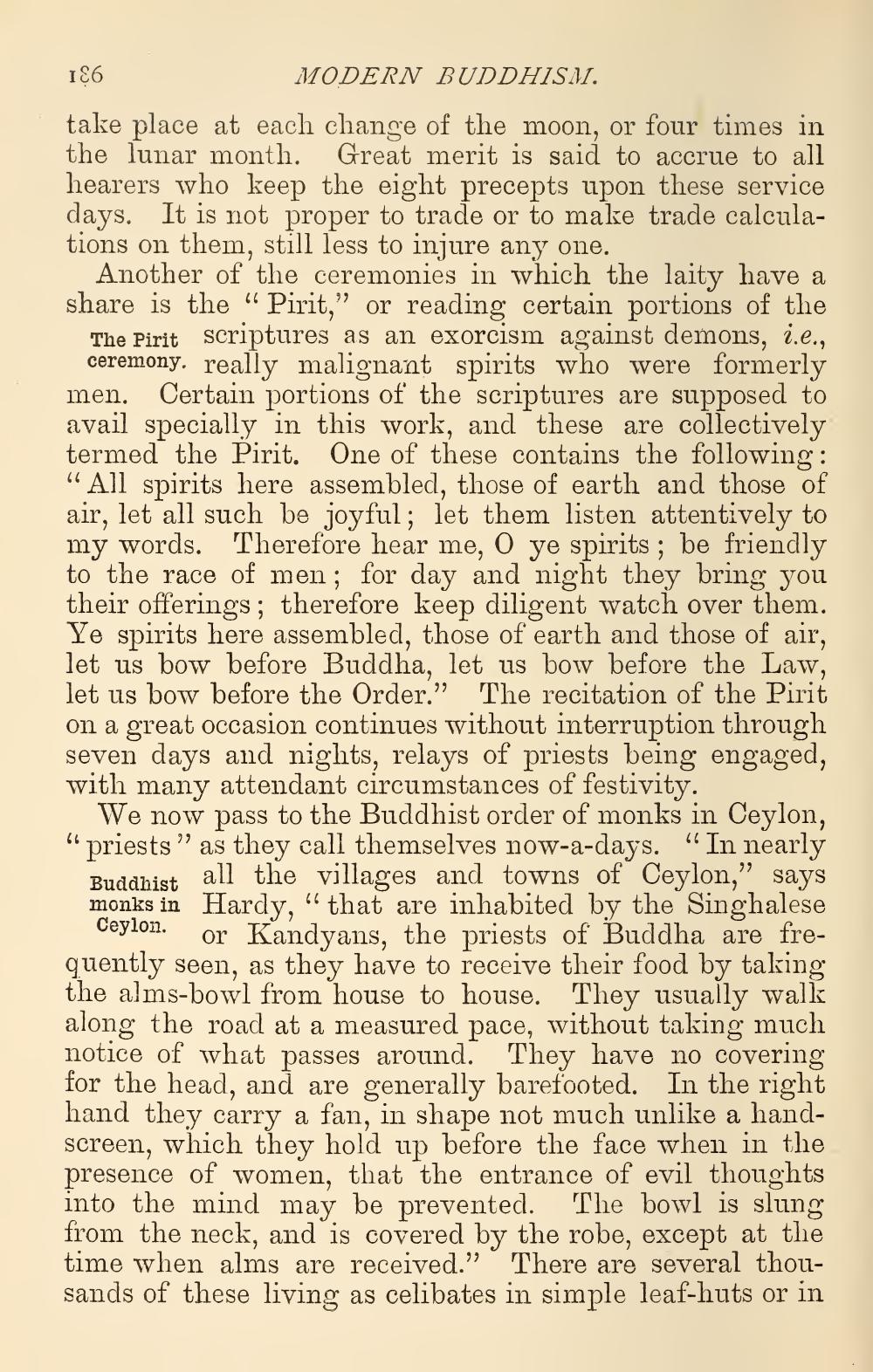________________
16
MODERN BUDDHISM. take place at each change of the moon, or four times in the lunar month. Great merit is said to accrue to all hearers who keep the eight precepts upon these service days. It is not proper to trade or to make trade calculations on them, still less to injure any one.
Another of the ceremonies in which the laity have a share is the “Pirit," or reading certain portions of the
The Pirit scriptures as an exorcism against demons, i.e., ceremony. really malignant spirits who were formerly men. Certain portions of the scriptures are supposed to avail specially in this work, and these are collectively termed the Pirit. One of these contains the following: “All spirits here assembled, those of earth and those of air, let all such be joyful; let them listen attentively to my words. Therefore hear me, 0 ye spirits ; be friendly to the race of men; for day and night they bring you their offerings; therefore keep diligent watch over them. Ye spirits here assembled, those of earth and those of air, let us bow before Buddha, let us bow before the Law, let us bow before the Order." The recitation of the Pirit on a great occasion continues without interruption through seven days and nights, relays of priests being engaged, with many attendant circumstances of festivity.
We now pass to the Buddhist order of monks in Ceylon, "priests” as they call themselves now-a-days. “In nearly
Buddhist all the villages and towns of Ceylon,” says monks in Hardy, "that are inhabited by the Singhalese
Ceylon. or Kandyans, the priests of Buddha are frequently seen, as they have to receive their food by taking the alms-bowl from house to house. They usually walk along the road at a measured pace, without taking much notice of what passes around. They have no covering for the head, and are generally barefooted. In the right hand they carry a fan, in shape not much unlike a handscreen, which they hold up before the face when in the presence of women, that the entrance of evil thoughts into the mind may be prevented. The bowl is slung from the neck, and is covered by the robe, except at the time when alms are received." There are several thousands of these living as celibates in simple leaf-huts or in




